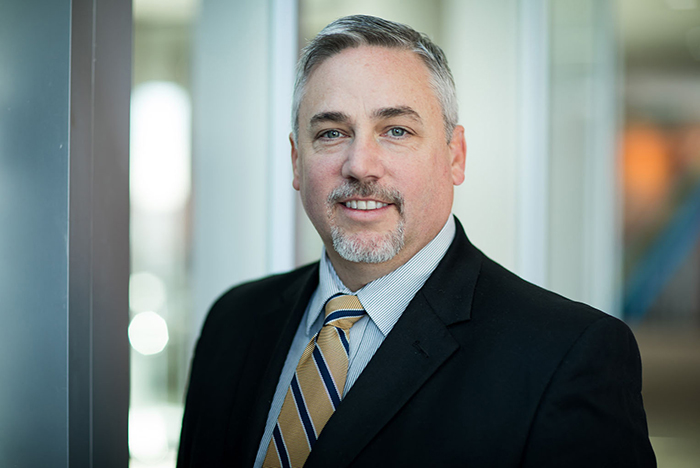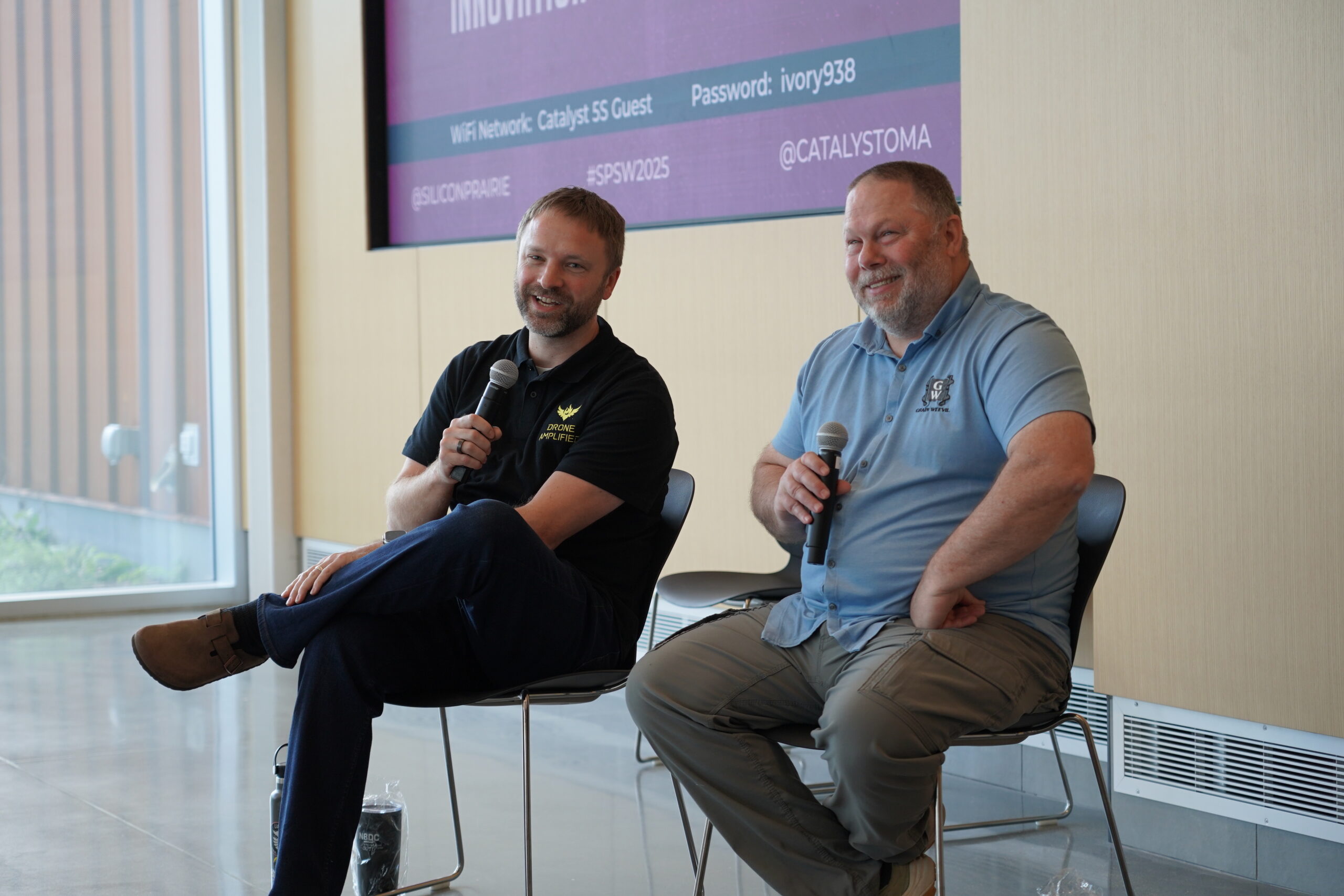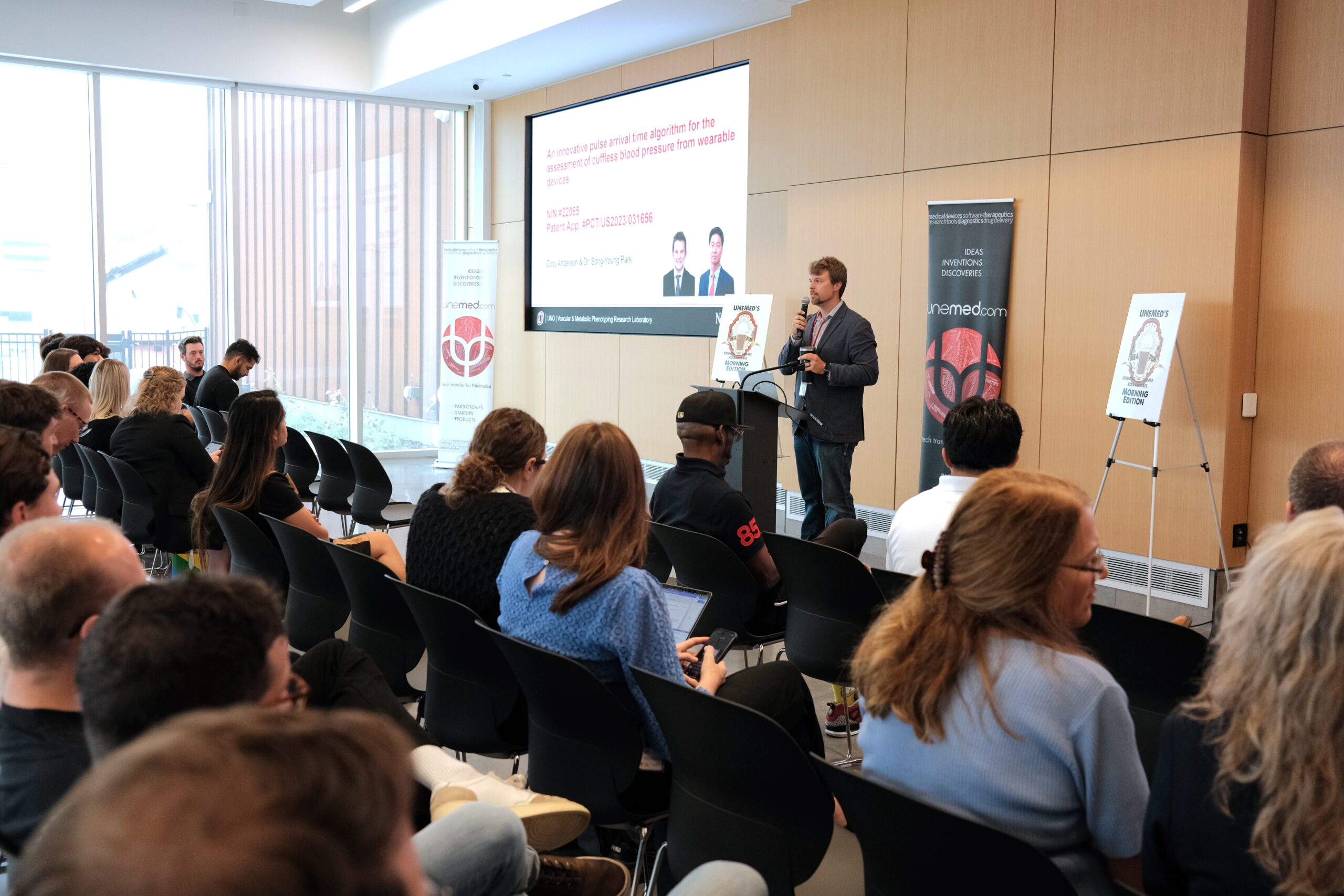Leadership is defined in times of crisis, and a leader earns their mark when they “gird and inspire people through difficult times,” historian Nancy Koehn wrote.
Valmont Industries President and CEO Stephen G. Kaniewski learned this firsthand through trial-by-fire. The tireless researcher, people person and tech leader at the helm of the Nebraska-born irrigation-systems manufacturer became CEO three years ago, unaware of the local, national and international crises about to erupt.
The 2018 United States–China trade war hit global manufacturers with tariffs, trade barriers and rising raw material costs. Valmont was no exception.
The 2019 Missouri River flood inundated towns all over eastern Nebraska and western Iowa, including Valmont largest factory in Valley, Nebraska, and two additional facilities in the area.
The 2020 COVID-19 pandemic has severely impacted public health and economic production around the world. That includes Valmont.
Formed in 1946, Valmont operates 87 factories on six continents in 23 countries and employs over 10,000 people. It’s also a Fortune 1000 company. Kaniewski’s leadership decisions are, therefore, seismic.
So far, he has taken events in stride. He helped Valmont temporarily shift production locations to partner facilities during last year’s flood and has implemented telecommuting, public health monitoring and cross-functional teams to promote employee safety and mitigate potential production delays due to the coronavirus. Despite facing these recurring challenges, Valmont increased revenue slightly to $2.8 billion in 2018 and held that number in 2019, according to 2018 and 2019 annual reports.
Meanwhile, Kaniewski has increased the company’s investment in technology, including expanding the growth of their innovative smart pole tech, unmanned aerial systems for inspections, and wireless monitoring technology on powerlines.
A Smart Leader with Curiosity, Compassion and Integrity
“As a leader, you can’t find many more leaders better than him,” said Claudio Laterreur, Senior Vice President of Information Technology and Chief Technology Officer at Valmont.
At Kaniewski’s invitation, Laterreur left a long and successful career at IBM to work for Valmont. He didn’t have to think twice. The two had worked together in the past and understood each other. Laterreur had always admired Kaniewski’s intelligence, integrity and deep understanding of people and technology.
“He’s a guy focused on the people,” Laterreur said.
And that includes all employees: executives, managers, production workers, office staff and everyone else.
“In short, I am a fan,” said Claudia Reutzel, Kaniewski’s executive assistant since 2018. “It is easy to be a fan because Steve is a humble, fun, remarkable guy. He truly cares about people and is always looking at helping others, not only during catastrophes like flooding or pandemics, but all the time.”
Kaniewski’s dedication to improving people’s lives extends beyond his role at Valmont. He has spent his time in the greater Omaha community helping build a better, brighter future through various forms of volunteerism, including serving as Board Chair for both the United Way of the Midlands and the AIM Institute, a nonprofit that works to remove barriers to technology education and strengthen the tech community.
The latter organization lies especially close to Kaniewski’s heart. He believes a tech background empowers people and gives them a competitive advantage. Nearly every employee at every company needs to use some form of technology to do their jobs, especially in the social distancing era.
So, in an environment where formerly specialized computer skills are now considered basic knowledge, how does one get an advantage in their career?
Learn more tech.
That doesn’t necessarily mean becoming a programmer. Rather, as Kaniewski believes, building tech skills will only strengthen a person’s contributions to their organization, regardless of the role they play.
“I’m a huge proponent that technology is the differentiator in a person’s career,” he said.
In other words, tech will be part of any job, but strong technical skills can give employees an advantage. From Kaniewski’s perspective, this is especially true for current and aspiring leaders, because it helps them better understand their organizations.
“The great leaders of companies know more about what goes on than other people,” he said. “The way you do that is you go get the data yourself, or you have the ability to access it or screen it better than anybody else.”
Tech Is For Everyone
Tech requires the contributions of individuals with all kinds of educational and professional backgrounds, not just those with the hard skills of engineering and development. Kaniewski, for instance, majored in sociology at Santa Clara University and began his career in retail and marketing. Eventually, he made the switch to tech, ultimately joining Valmont in 2010 to lead the corporate IT group.
“I wasn’t a techie, I was an Ops person. Then I was in IT, then I was back in Ops, then IT, then Ops,” he said of his career path. “Each time, I got a little sharper.”
This kind of professional agility can be attributed to an endless curiosity about the world, coupled with voracious reading.
Described by Reutzel as a “walking Google,” Kaniewski is well-versed in everything from politics to religion and medicine to history.
“There’s probably not a topic that you can talk about that he hasn’t read up on or doesn’t have an opinion on,” Laterreur said. “If I would take a sample across the U.S. of the top CEOs that are able to combine a humanistic side and a business side, Steve would be in the top three in my mind.”
Such success, perhaps, stems from knowing how to get, store and retrieve the necessary information—and using the technology available to apply it appropriately. That could mean using real-time city data to monitor market conditions and building a spun concrete distribution pole facility in response to favorable demand, but it could also mean remembering a colleague’s complaints about their sore back, recalling some research about a certain mineral’s role in pain processing and suggesting a possible solution that they could look into with her doctor.
“Access to actionable information is always going to set you apart,” Kaniewski said. “Talented young people have no issues in getting data or using technology to be disruptive in a good way.”
As for those talented young people, digital natives early in their careers, Kaniewski strongly advises them to build more advanced technical skills.
“Especially after COVID, people will have to make career changes,” Kaniewski said. “They may have come out [of school] with a desire to do one thing, [but] you have to be adaptable to really get ahead. I always make that point with young people. If you think you’re just going to do one thing, then you’re in for a rude awakening.”
—
This article featured reporting by Maria Brady of the AIM Institute.



